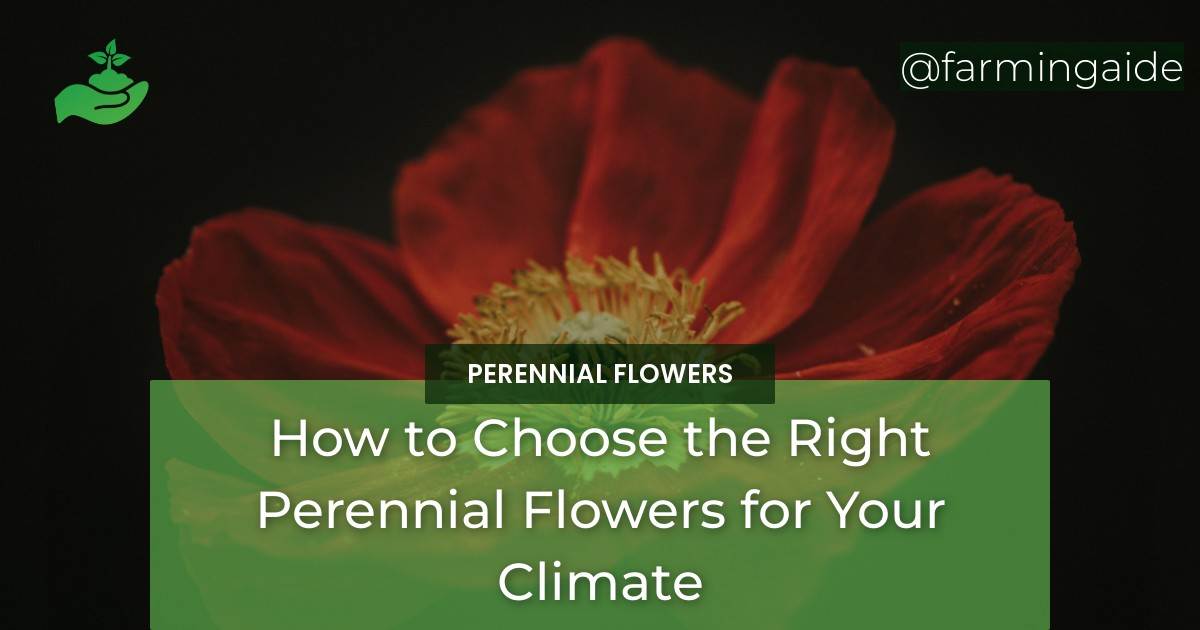Perennial flowers are a popular choice for many gardeners due to their longevity and low maintenance requirements. However, choosing the right perennial flowers for your climate can be a daunting task. With so many options available, it can be difficult to know where to start. In this comprehensive guide, we will explore the factors to consider when selecting perennial flowers, the best perennial flowers for different climates, and tips for planting and maintaining your flowers. By the end of this article, you will have the knowledge you need to choose the perfect perennial flowers for your garden.
Factors to Consider when Selecting Perennial Flowers
Hardiness Zone
One of the most important factors to consider when selecting perennial flowers is your hardiness zone. Hardiness zones are determined by the average minimum temperature in your area and range from 1 (coldest) to 13 (warmest). Choosing plants that are suited to your hardiness zone will ensure that they can survive the winter and thrive in your garden. You can find your hardiness zone by checking online maps or consulting with your local garden center.
Temperature and Humidity
Temperature and humidity are also important factors to consider when selecting perennial flowers. Some plants prefer cooler temperatures, while others thrive in heat. Similarly, some plants prefer dry conditions, while others require humidity. Consider the average temperature and humidity in your area and choose plants that are suited to those conditions.
Soil Type
Soil type can also impact the success of your perennial flowers. Some plants prefer well-drained soil, while others require moist soil. Some plants will tolerate acidic soil, while others require alkaline soil. Before selecting your plants, test your soil to determine its pH and texture. This will help you choose plants that are best suited to your soil type.
Sunlight Exposure
The amount of sunlight your garden receives can also impact your choice of perennial flowers. Some plants prefer full sun, while others require partial or full shade. Consider the amount of sunlight your garden receives throughout the day and choose plants that are suited to that level of sun exposure.
Best Perennial Flowers for Different Climates
Perennial Flowers for Cold Climates
When selecting perennial flowers for cold climates, it’s important to choose plants that are hardy and can survive harsh winter conditions. Some of the best options for cold climates include:
- Lupine
- Black-eyed Susan
- Coneflower
- Daylily
- Peony
Perennial Flowers for Warm Climates
When selecting perennial flowers for warm climates, it’s important to choose plants that can tolerate heat and humidity. Some of the best options for warm climates include:
- Coreopsis
- Salvia
- Blanket flower
- Veronica
- Lantana
Perennial Flowers for Dry Climates
When selecting perennial flowers for dry climates, it’s important to choose plants that can tolerate drought conditions. Some of the best options for dry climates include:
- Yarrow
- Lavender
- Cactus
- Agave
- Butterfly weed
Perennial Flowers for Humid Climates
When selecting perennial flowers for humid climates, it’s important to choose plants that can tolerate high levels of humidity. Some of the best options for humid climates include:
- Hosta
- Astilbe
- Japanese iris
- Bee balm
- Fuchsia
ALSO READ
Tips for Planting and Maintaining Perennial Flowers
Planting Tips
When planting your perennial flowers, be sure to prepare the soil by removing any weeds or debris. Dig a hole that is slightly larger than the plant’s root ball and backfill with soil. Water thoroughly to encourage root growth.
Watering Tips
Perennial flowers require regular watering to thrive. Water deeply once a week, rather than shallowly every day. This will encourage deep root growth and help your plants survive drought conditions.
Fertilizing Tips
Perennial flowers require regular fertilization to ensure healthy growth. Use a balanced fertilizer once in the spring and again in the fall to provide your plants with the nutrients they need.
Pruning Tips
Perennial flowers require regular pruning to remove dead or diseased growth and promote healthy plant growth. Prune your plants in the spring before new growth appears and again in the fall before winter sets in.
Conclusion
Choosing the right perennial flowers for your climate requires careful consideration of factors such as hardiness zone, temperature and humidity, soil type, and sunlight exposure. By selecting plants that are suited to your climate and following the tips for planting and maintenance outlined in this guide, you can enjoy a beautiful and thriving garden full of gorgeous perennial flowers.


